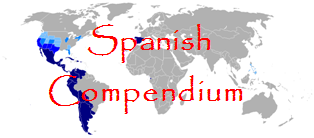The school board President of the Pasadena Unified School District talks about the importance of language instruction for youths:
Dual Language Immersion programs are a draw for middle class parents. The world is a smaller place and parents understand that their children will have a career advantage in the world if they are multilingual. It is increasingly necessary to be multilingual for any kind of position with the county or the city that requires public service. It is necessary to be able to communicate with whoever comes to the window seeking assistance. We may not be able to teach our children a second language at home, but African American parents should definitely be taking advantage of foreign language instruction offered though the school district.
She’s absolutely right but I have to disagree that parents can’t do anything to help their children on the way to learning a foreign language. Although they may feel that there’s not enough time in the day, investing even just a little bit of time to further and reinforce their children’s language learning studies. Here are a couple suggestions:
- Supplemental material books – these books contain straight up grammar but also go over tips and tricks that will help increase vocabulary and make the language seem more daunting
- Spanish language programs which contain games, puzzles and tips/tricks in addition to instruction
The point isn’t that busy, overworked parents need to huge amounts of resources so their children can learn Spanish. But that taking an interest in your children’s acquisition of a foreign language will go a long way towards helping them survive and thrive in a new, multilingual world.
Use these materials to learn a few phrases in Spanish (or whatever target language your child is studying). Weave them them into your daily routine. This will show your kids real world applications and take it out of the abstract realm of something they only use in school. Go to Mexican or Spanish or Latin American restaurants and challenge your kids to speak in Spanish with the wait staff (if the staff itself speaks Spanish, that is) and to read the items on the menu in Spanish.


